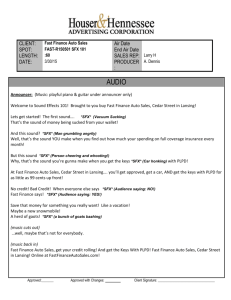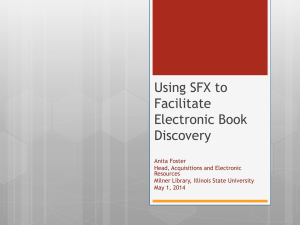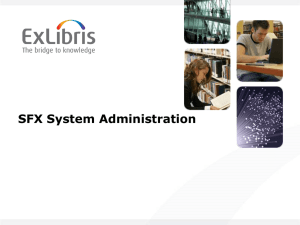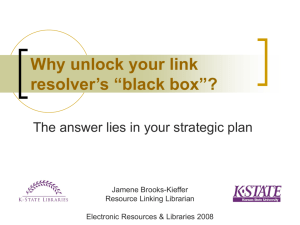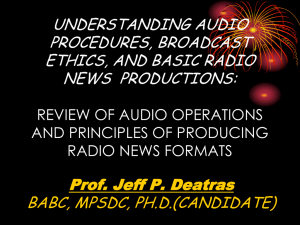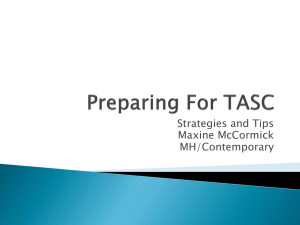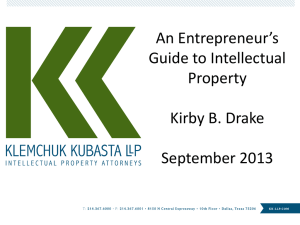SFX - Management Basics - South Dakota Library Network
advertisement
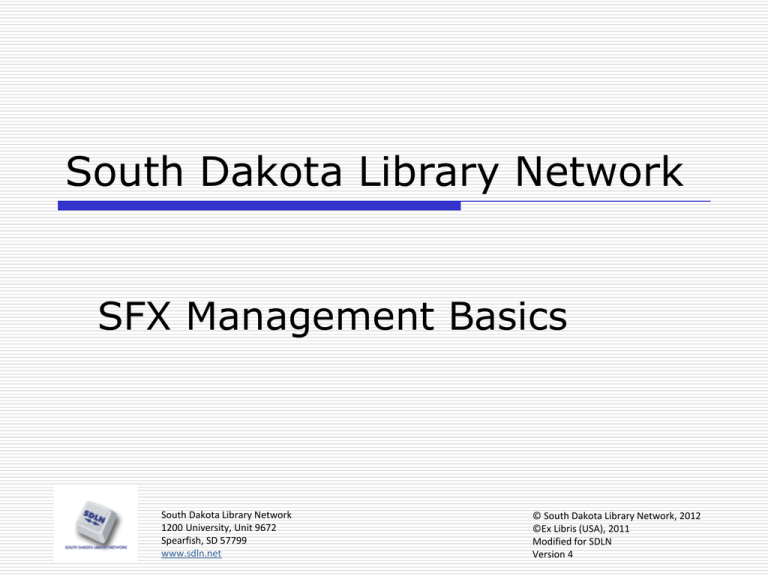
South Dakota Library Network SFX Management Basics South Dakota Library Network 1200 University, Unit 9672 Spearfish, SD 57799 www.sdln.net © South Dakota Library Network, 2012 ©Ex Libris (USA), 2011 Modified for SDLN Version 4 SFX Management Basics Introduction – SFX, what the user sees 2 SFX Management Basics SFX Terminology - Sources Sources – where the user is coming from, beginning their search Resources that can be the starting point of a link or link‐sources—for example, an A & I database, a reference in a journal article, or an OPAC record. The most important field in the source list is the SOURCE ID. This field contains information that the SFX program needs about the origin of the SFX request. SOURCE ID is a required field. It is not possible to add a new source without specifying the source ID. Each source is connected to a number of source services. Must be Open-URL enabled 3 SFX Management Basics SFX Terminology - Targets Targets – databases, must have a link to syntax that supports the target service 4 SFX Management Basics SFX Terminology – Target Services Target Services – the different link to syntaxes supported by targets Examples: •getAuthor – link to an author’s record •getFullTxt – link to the full text of a particular article from a Target publisher •getHolding - link to a record in a library catalog 5 SFX Management Basics SFX Terminology – Target Services Target Services 6 SFX Management Basics SFX Terminology - Objects Objects - The bibliographic record for an item (book or journal) Contains: •Title •ISSN/E-ISSN •CODEN •Abbreviated titles (alternate) •Object type •Related objects (title or ISSN change) 7 SFX Management Basics SFX Terminology - Objects Object 8 SFX Management Basics SFX Terminology – Object portfolios Object Portfolios – Connect the Target Services and Objects Example: An object portfolio from EBSCOHost Academic Search Premier collection is different from an object portfolio in LEXISNEXIS Academic collection They can have different dates of coverage for different services/titles 9 SFX Management Basics How it all works 10 SFX Management Basics Using different targets/portfolios for full coverage 11 SFX Management Basics SFX Admin Module - KBManager Login to http://sfx.sdln.net:3210/sfxadmin/sfxxxx (your library code follows sfx, example sfxsda) 12 SFX Management Basics Search for Targets Click Targets in the KBManager 13 SFX Management Basics Filter Target List Find a target by using the Filter Target List box: 14 SFX Management Basics Filtered Target list 15 SFX Management Basics Filtered Target list – Active/Inactive You can choose to see Active Resources, Inactive Resources, All Resources 16 SFX Management Basics Multiple Targets under one provider Click the + 17 SFX Management Basics Icon Legend Different options available in different locations 18 SFX Management Basics Target Services Click S 19 SFX Management Basics L/P Values – Linking Parameters Click L/P This is where you will see username/password information, click E to edit 20
